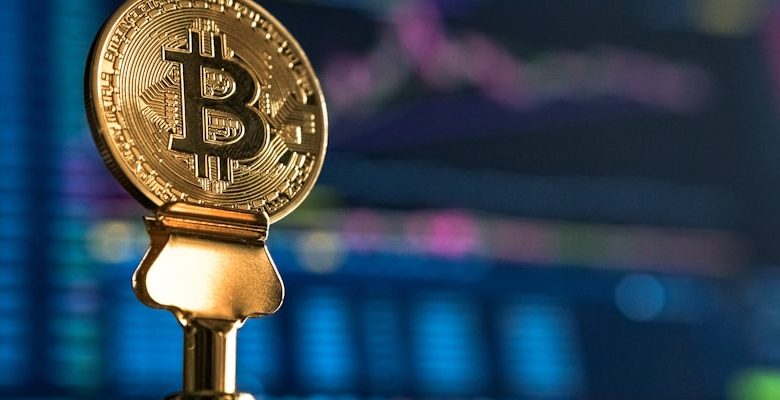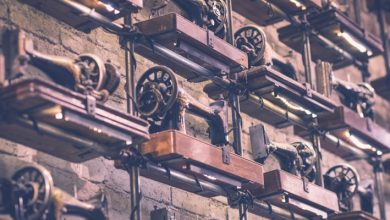The Rise of Decentralized Autonomous Organizations (DAOs)

- Understanding the concept of Decentralized Autonomous Organizations (DAOs)
- The evolution of blockchain technology and its role in enabling DAOs
- Exploring the benefits and challenges of operating a DAO
- The impact of DAOs on traditional corporate structures and governance
- Case studies of successful DAOs in various industries
- The future of DAOs and their potential to revolutionize the way organizations are run
Understanding the concept of Decentralized Autonomous Organizations (DAOs)
The concept of Decentralized Autonomous Organizations (DAOs) is a revolutionary idea that is transforming the way organizations operate in the digital age. DAOs are essentially self-governing entities that run on blockchain technology, allowing for decentralized decision-making and operations without the need for a central authority.
One of the key principles behind DAOs is the use of smart contracts, which are self-executing contracts with the terms of the agreement directly written into code. These smart contracts enable DAOs to automate processes, enforce rules, and facilitate transactions without the need for intermediaries. This not only streamlines operations but also increases transparency and reduces the risk of fraud.
DAOs operate on a system of consensus, where decisions are made collectively by members of the organization through voting mechanisms. This ensures that all stakeholders have a say in the direction of the organization and helps to prevent any single entity from gaining too much control. Additionally, DAOs often have built-in mechanisms for dispute resolution and governance, further enhancing their effectiveness as autonomous entities.
Overall, DAOs represent a new paradigm in organizational structure, offering a decentralized and transparent alternative to traditional hierarchical models. As the technology behind DAOs continues to evolve and mature, we can expect to see more organizations embracing this innovative approach to governance and decision-making.
The evolution of blockchain technology and its role in enabling DAOs
Blockchain technology has played a crucial role in the rise of Decentralized Autonomous Organizations (DAOs). DAOs are entities that operate through code on a blockchain, allowing for decentralized decision-making and governance without the need for a central authority. The evolution of blockchain technology has enabled DAOs to function autonomously, executing smart contracts and managing resources without human intervention.
One of the key features of blockchain technology that has enabled the rise of DAOs is its immutability. The data stored on a blockchain is tamper-proof, ensuring that once a transaction is recorded, it cannot be altered. This feature is essential for DAOs, as it provides a secure and transparent record of all transactions and decisions made by the organization.
Another important aspect of blockchain technology that has empowered DAOs is its decentralized nature. Blockchain networks are distributed across a network of nodes, eliminating the need for a central point of control. This decentralization allows DAOs to operate without being subject to the whims of a single entity, ensuring greater autonomy and resilience.
Additionally, the use of smart contracts on blockchain networks has revolutionized the way DAOs operate. Smart contracts are self-executing contracts with the terms of the agreement directly written into code. This automation allows DAOs to execute transactions and enforce rules without the need for human intervention, streamlining operations and reducing the potential for errors or fraud.
Overall, the evolution of blockchain technology has been instrumental in enabling the rise of DAOs. By providing a secure, transparent, and decentralized platform for autonomous organizations to operate, blockchain technology has paved the way for a new era of decentralized governance and decision-making.
Exploring the benefits and challenges of operating a DAO
Operating a Decentralized Autonomous Organization (DAO) comes with a range of benefits and challenges that organizations need to consider before diving into this innovative way of governance.
One of the key benefits of operating a DAO is the transparency it offers. All decisions and transactions are recorded on the blockchain, providing a high level of transparency that can help build trust among members. Additionally, DAOs can operate 24/7 without the need for human intervention, making them highly efficient.
However, there are also challenges associated with operating a DAO. One of the main challenges is the lack of regulatory clarity surrounding DAOs. As these organizations operate in a decentralized manner, it can be difficult for regulators to oversee and enforce compliance.
Another challenge is the potential for security vulnerabilities. DAOs are often targeted by hackers due to their decentralized nature, making them a prime target for attacks. Organizations need to invest in robust security measures to protect their assets and members.
In conclusion, while operating a DAO offers numerous benefits such as transparency and efficiency, organizations need to be aware of the challenges they may face, including regulatory uncertainty and security risks. By carefully weighing the pros and cons, organizations can determine if operating a DAO is the right choice for them.
The impact of DAOs on traditional corporate structures and governance
Decentralized Autonomous Organizations (DAOs) have been disrupting traditional corporate structures and governance models in recent years. DAOs operate on blockchain technology, allowing for decentralized decision-making processes and eliminating the need for centralized control. This shift towards decentralized governance has the potential to revolutionize how businesses are run, with implications for transparency, efficiency, and accountability.
One of the key impacts of DAOs on traditional corporate structures is the removal of intermediaries and middlemen. By utilizing smart contracts and blockchain technology, DAOs can automate decision-making processes and reduce the need for costly third-party intermediaries. This not only streamlines operations but also reduces the risk of fraud and corruption within organizations.
Additionally, DAOs promote a more democratic approach to governance, allowing all members of the organization to have a say in decision-making processes. This level of inclusivity and transparency can lead to more innovative solutions and greater buy-in from stakeholders. It also fosters a sense of community and collaboration among members, strengthening the overall resilience and sustainability of the organization.
Furthermore, the use of blockchain technology in DAOs ensures a high level of security and immutability in record-keeping. This can help prevent data breaches and tampering, enhancing trust among stakeholders and investors. The transparent nature of blockchain also allows for greater visibility into the inner workings of the organization, promoting accountability and ethical practices.
In conclusion, the rise of DAOs is reshaping traditional corporate structures and governance models by promoting decentralization, transparency, and inclusivity. As more organizations adopt this innovative approach to decision-making, we can expect to see a shift towards more efficient, secure, and democratic business practices in the future.
Case studies of successful DAOs in various industries
Exploring case studies of successful decentralized autonomous organizations (DAOs) across various industries provides valuable insights into their potential and impact. These examples showcase how DAOs have revolutionized traditional business models and operations:
- Agriculture: A DAO focused on sustainable farming practices implemented a voting system where members decide on which crops to plant each season. This democratic approach has led to increased productivity and environmental stewardship.
- Finance: A decentralized investment fund DAO allows individuals to pool their resources and vote on investment decisions collectively. This model has democratized access to financial opportunities and reduced reliance on traditional banking institutions.
- Real Estate: A DAO dedicated to property management leverages smart contracts to automate rental agreements and maintenance tasks. This innovation has streamlined processes, reduced costs, and increased transparency for both landlords and tenants.
- Technology: A DAO focused on developing open-source software relies on community contributions and voting mechanisms to prioritize project milestones. This collaborative approach has accelerated product development and fostered a vibrant developer community.
Overall, these case studies highlight the diverse applications of DAOs and their potential to disrupt established industries. By embracing decentralized governance and automated decision-making, these organizations are paving the way for a more inclusive and efficient future.
The future of DAOs and their potential to revolutionize the way organizations are run
Decentralized Autonomous Organizations (DAOs) have the potential to transform the way traditional organizations are structured and managed. DAOs are built on blockchain technology, enabling decentralized decision-making and autonomous operation. This innovative approach eliminates the need for central authority, allowing for greater transparency, efficiency, and trust.
DAOs are run by smart contracts, which are self-executing agreements with the terms of the contract directly written into code. This eliminates the need for intermediaries and ensures that decisions are carried out as intended. DAOs also allow for greater inclusivity, as anyone with an internet connection can participate in decision-making processes.
The future of DAOs is brimming with possibilities. As the technology continues to evolve and mature, we can expect to see DAOs playing a significant role in various industries, from finance to governance. With the potential to revolutionize the way organizations are run, DAOs have the power to democratize decision-making, increase efficiency, and foster innovation.



